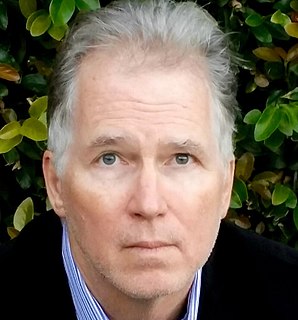A Quote by Larry Flynt
I've always felt that feminism was just an excuse for ugly women to march.
Related Quotes
All year there have been these cover stories that the women's movement is dead and about the death of feminism and the post-feminist generation of young women who don't identify with feminism - and then we have the biggest march ever of women in Washington. More people than had ever marched for anything - not only more women, but more people.
Something I say a lot when it comes to anti-feminist stereotypes is that they exist for a reason. The stereotypes of feminists as ugly, or man-haters, or hairy, or whatever it is - that's really strategic. That's a really smart way to keep young women away from feminism, is to kind of put out this idea that all feminists hate men, or all feminists are ugly; and that they really come from a place of fear. If feminism wasn't powerful, if feminism wasn't influential, people wouldn't spend so much time putting it down.
I think feminism has always been global. I think there's feminism everywhere throughout the world. I think, though, for Western feminism and for American feminism, it not so surprisingly continues to center Western feminism and American feminism. And I think the biggest hurdle American feminists have in terms of taking a more global approach is that too often when you hear American feminists talk about international feminism or women in other countries, it kind of goes along with this condescending point of view like we have to save the women of such-and-such country; we have to help them.
I had a real come-to-Jesus a couple of years ago when I started to see the direct line between feminism and everything else - feminism and climate change, feminism and poverty, feminism and hunger - and it was almost like I was born again and started walking down the street and was like, "Oh, my God, there are women everywhere! They're just everywhere you look. There's women all over the place!"
Women need to take charge of their lives and be as dynamic and active as they can be. I know that some people feel that there's a negative connotation to the notion of feminism like it has some hidden and ugly undercurrent. But that's ridiculous. My mother was a feminist and she was very politically-minded and always anxious to defend women's rights and advance a lot of social issues for women.
Much of the appeal of feminism is that it encourages women to do what they always felt like doing anyway: take everything personally. But to succeed at the highest level, you need some objectivity, which feminism hates. Feminists see objective reality as a conspiracy out to make them feel bad about themselves.
I get very frustrated when I hear women saying, "Oh, feminism is passé," because I think feminism means empowerment. Men can be feminists, too! Many men are feminists. We need feminism. It's not against men; it's about the empowerment of women. It's the respect of women - giving women equal rights, the same opportunities.
People sometimes say that we will know feminism has done its job when half the CEOs are women. That’s not feminism; to quote Catharine MacKinnon, it’s liberalism applied to women. Feminism will have won not when a few women get an equal piece of the oppression pie, served up in our sisters’ sweat, but when all dominating hierarchies - including economic ones - are dismantled.
There's no such thing as post-feminism. It's like saying post-democracy, excuse me, what does that mean? We're nowhere near equality, so the very idea of post-feminism is ridiculous. The same people who 30-40 years ago said the women's movement is not necessary, 'it's going against nature, my wife is not interested' [are] the same people now saying 'well it used to be necessary but not anymore.' The very invention of the word post-feminism is the current form of resistance.
The stereotypes of feminists as ugly, or man-haters, or hairy, or whatever it is - that's really strategic. That's a really smart way to keep young women away from feminism, is to kind of put out this idea that all feminists hate men, or all feminists are ugly; and that they really come from a place of fear.


































